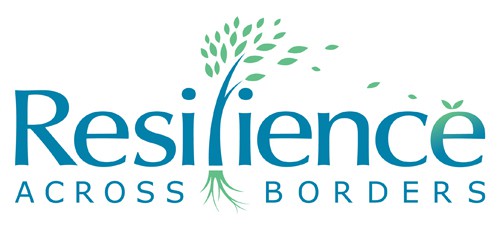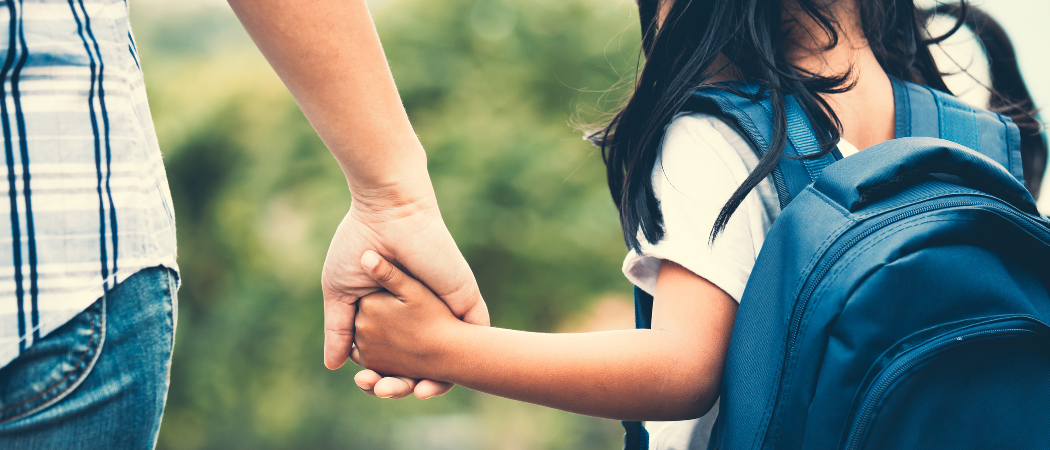Three Ways to Help Kids As They Start (Another) Uncertain School Year
Whether or not they say it out loud, many kids are apprehensive about starting school. On top of the normal anxiety, they’re processing pandemic-related concerns. Whether your child is full of excitement or dread (or both), it’s not hard to relate. As the comedy writer Matt Buechele put it recently, “We are rounding the corner, and what is around the next corner? It is … another corner.” Leaning on humor won’t end COVID, but it could help us summon the reserves for another year of disruption.
Here are three other ways you can help your kids manage uncertainty and engage fully in their lives:
Normalize fears and plan together
In a normal school year, kids may worry that they’ll get on the wrong bus or have no one to sit with at lunch. But now, they also have to worry about following COVID protocols, seeing friends they haven’t seen in 18 months, and sustaining stamina after so much time at home.
Try to get a sense of their concerns, then troubleshoot together. Perhaps it would help to start following a new schedule now or come up with a system for tracking and handing in work. If they’re worried about finding their way around or understanding new rules, take advantage of mock days or other orientation activities. You could even read the school handbook together.
Socially, kids could arrange to meet someone for lunch on the first day, or schedule an after-school playdate with a familiar, trusted friend. Reassure them that you can reassess and tweak the plan with them if it’s not working.
Stay calm and lower the pressure
Acknowledge that we’re living through challenging times and validate their anxieties. Kids know when adults are not at their peak, so be authentic. Tell them when you’re dysregulated and how you plan to manage your feelings. Ideally, kids “catch our calm,” but that’s not always possible. If you lose your cool, circle back to them and apologize.
This is particularly important if you find yourself battling over grades or homework. Many kids have taken a hit to their academic self-concept during the pandemic. And while all kids are still learning to manage school demands, it’s even harder to stay focused and organized when your world has been turned inside out.
In response to that loss of control, some kids have developed a new obsession with grades. Their perfectionism could make it hard for them to get started—or stop—working. Others are overwhelmed and don’t know how to ask for help. Try to get at the root of the problem. Do they need help breaking down an assignment? Do they need a break? Do they need help emailing a teacher or setting realistic expectations?
On the flip side, look for ways to make homework fun. If the stakes feel too high, kids can tense up and fail to produce anything. I recently spoke to Martin Reeves, co-author of The Imagination Machine: How to Spark New Ideas and Create Your Company’s Future, who suggests turning homework into a game whenever possible. He’ll have his kids ask and answer a homework question faster and faster until they break down laughing. Or he’ll have them imagine the worst possible way to complete a project. The point is to make learning playful. As he noted, “You won’t hear anyone say, ‘I just played with my Lego and it was a real grind.’”
Set realistic social expectations
Kids are understandably concerned about their social status after so much time apart. This one is tricky, because their fears are not unfounded. Their friendships are likely to change, even without a pandemic. To help them manage these fears, assure them everyone is feeling the same way and help them think more expansively.
Ask, “What can you do if you need to shift groups or make new friends?” Help them think about social skills, too. You might ask, “How can you join a conversation or find common ground?” Put them back in the driver’s seat by asking, “What are the traits you look for in a friend? How can you recognize when you’ve outgrown one? How can you create distance without burning a bridge?” Help them understand that no one friend could possibly meet all of their needs, and that it’s healthy to broaden their network. Share examples from your own life. Perhaps there’s one friend who you like to go jogging with and another who you count on to make you laugh when you’re feeling down.
Which brings me back to humor. As Buechele also noted: “Look, there is a light at the end of the tunnel. Is it oncoming traffic? Maybe.” Whatever we find on the other side of that tunnel, we can ease kids’ journey by lightening the mood and giving them back a sense of agency.
Phyllis L. Fagell, a licensed clinical professional counselor, is the author of “Middle School Matters,” the school counselor at Sheridan School and a therapist at the Chrysalis Group. She tweets @pfagell and blogs at phyllisfagell.com.
Blog Post

